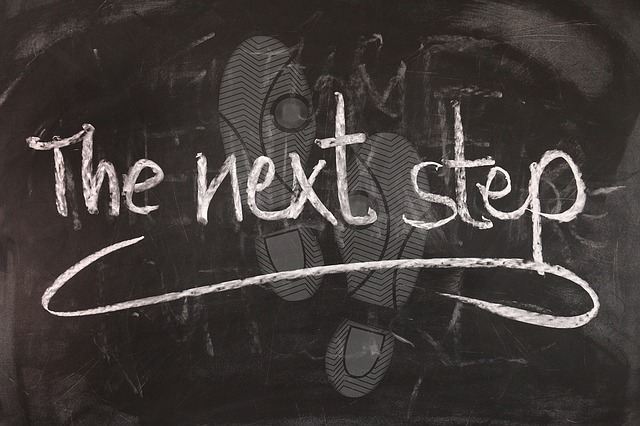
Since it’s the beginning of the year, we’ve been focusing on resolutions and goal setting. And maybe you’re like, “That’s great Michelle and Pam but it’s easy to make a goal…it’s so much harder to actually work towards and achieve them! ” We would wholeheartedly agree with you! While we have no magic tricks for this (sorry!), sometimes it’s even harder than it needs to be because we are trying to get ahead of ourselves.
When you are setting or evaluating your goals, it is helpful to figure out what stage of change you are in and determine goals accordingly. The Transtheoretical Model of Change spells out 5 stages of change. (We aren’t really sure what “transtheoretical” means but we think their model makes sense!)
1) Precontemplation – When we are in this stage we have no near future (within 6 months) plans for change. We, also, underestimate the benefits of change and overestimate the cons and costs of change. During this phase, there really is no conscious decision-making – so we are not aware we are doing this. In a sense, we are in kind of denial.
During this stage-
Don’t – Set a goal that corresponds to this change. In other words if you are in the pre-contemplative stage about starting an exercise regimen, don’t set a goal that says, ” I will get to the gym 5 days a week.” Setting this kind of goal during this stage is the quickest way to sabotage; because we aren’t emotionally ready.
Do – Set a goal to think about the benefits of this change at least once a day for a certain period of time. Or set a goal to read something short about the benefits of this change daily. This is a way of moving towards the next stage. Thinking about a change actually gets people used to the idea.
2) Contemplation – When we are in this stage, we are thinking about a change but aren’t quite ready or do not quite know how to go about it. We tend to be more open to information and ideas at this point and the pros and cons of change feel about equal. We are open to change but are still on the fence.
Don’t – Jump ahead. Again this is not a time to set an aggressive goal. When we skip steps, we miss important emotional preparation stages….when we do that, we get overwhelmed or frustrated and inadvertently sabotage ourselves.
Do – Envision. Ask yourself, what will genial maman et fils erection accidentelle hdthe 2 I be like if I make this change? How will I feel? What will I do? We can journal about this or we can visualize in our minds eye…or more completely on something like a vision board. Ask others who have made this change what it was like. The goal here is to gain confidence in the idea of change; which again helps us move towards the next stage.
3) Preparation – We are in this stage if we are feeling motivated and are actively gathering information and tools in anticipation of making a change.
Don’t – Get stuck here. It is easy to get stuck here and bounce between contemplation and preparation.
Do – Decide on a start date. Defining a start date helps you to avoid getting stuck. It moves you towards the next stage.
4) Action – This is the implementation phase and it is pretty self explanatory. We are in this stage if we are actually taking necessary steps toward change. We’ve signed up for a class or we’ve joined and are going to a gym.
Don’t – Get frustrated with small changes because this can cause derailing! Instead, acknowledge and celebrate them! During the action stage (as always!) we are looking for progress, not perfection!
Do – Remember your “why!” Keep visual reminders of the positive impacts that this change can have. Maintaining motivation is key during this stage. This is what moves you to the next phase of change.
5) Maintenance – We are in the maintenance phase if we have stayed in the action phase for about 6 months. The actions we’ve been implementing feel fairly routine. Yay!
Don’t – Get bored! Most of us know that life stress and overwhelm are triggers for relapsing during a change process; but so is boredom! So keep it interesting 🙂
Do – Practice good self-care during these changes. Seek out friends and healthy strategies to help during stressful times to avoid reverting back to old ways.
6) Adoption – Woohoo!! This is when the change is now part of our new normal. (The powers that be have determined that this is after you’ve been doing your new actions for 2 years. )
Don’t – give up if you have relapsed. Practice quicker and quicker recoveries.
Do – Look back and notice where you were and where you are. Remember what then felt like and what now feels like….and celebrate!
Take care of you…

